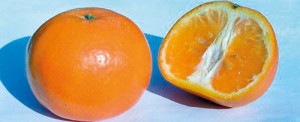Sunday Times 2
Fruit juice factories could be powered from waste water
[SAO PAULO] Brazilian scientists have developed a way to use waste water from the orange juice industry to generate power, which could help reduce factory carbon emissions.

Image credit: Rafiqul Islam, Wellcome Images
The technology, created by scientists at Sao Paulo State University, uses waste water produced by orange processing to make hydrogen. Hydrogen has a high energy density and produces no pollution, making it a good source of clean energy.
The research project, which was completed last month, was led by Sandra Maintinguer, a researcher at the university’s Center for Monitoring and Research of the Quality of Fuels, Biofuels, Crude Oil and Derivatives. The work, which was funded by the Sao Paulo Research Foundation (FAPESP), is ready to be piloted at local juice factories.
Maintinguer explains that using waste water from orange juice production would work best on a small scale, creating energy on the factory grounds without the need for transportation. The energy is meant to be fed right back into running the factory.
“We can combine the treatment of the industrial effluents with energy generation,” Maintinguer says. “We propose to install a reactor to capture hydrogen and generate electricity out of the waste water. This energy could be used as a sustainable solution to provide electricity to factories.”
Using laboratory tests, Maintinguer and her team found that waste water from juice production, which contains about 12 grams of sugar per litre, is better suited to hydrogen generation than the molasses obtained from refining sugar or vinasse (the residue left after distilling spirits), which contain up to 150 grams of sugar per litre and have also been trialled in clean energy production. Too much sugar prevents the growth of the bacteria that break down the sugar and generate hydrogen in the process, she explains.
The technology is especially suited to many developing nations, because of the temperatures at which the hydrogen-producing bacteria prosper.

